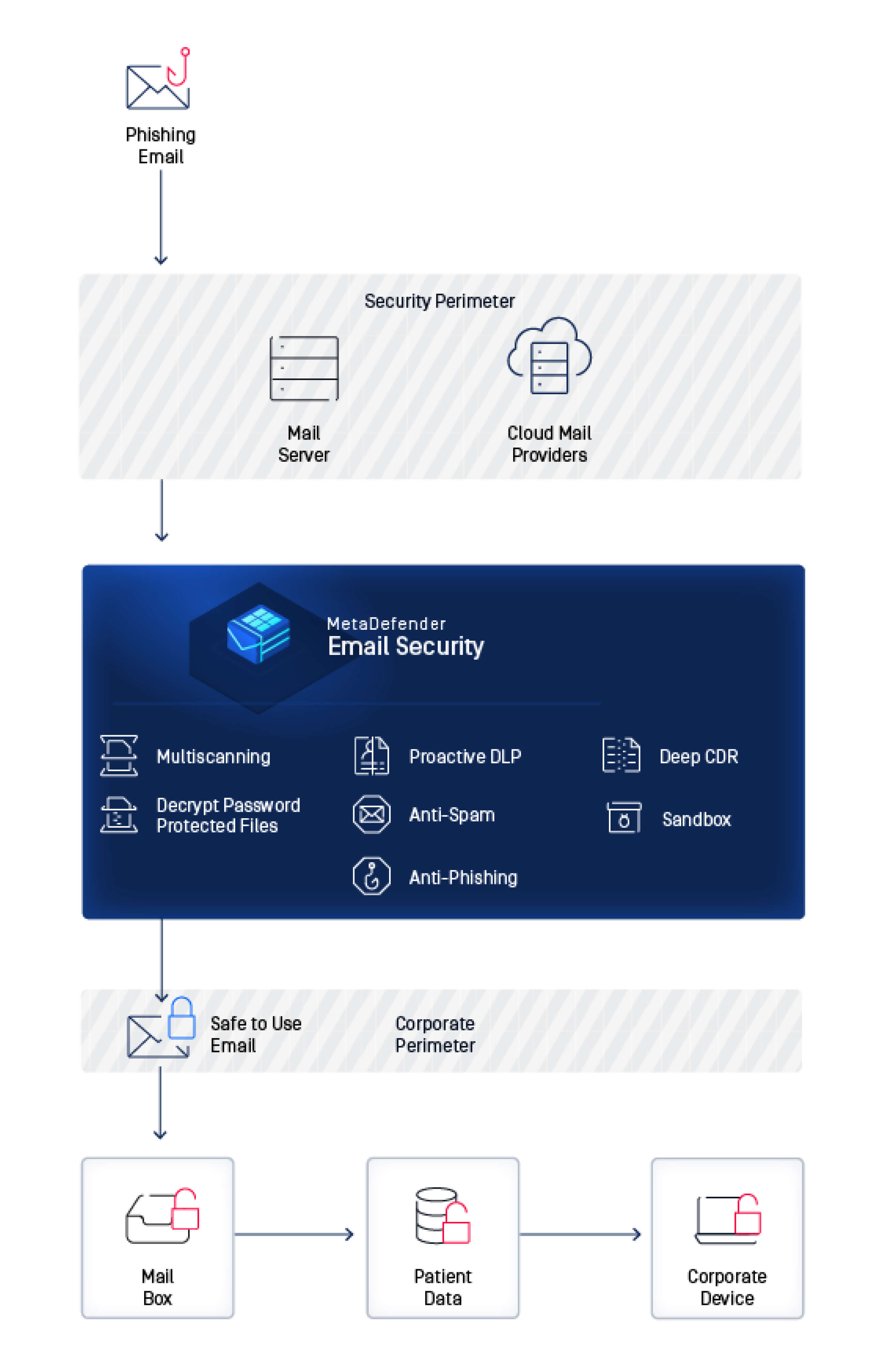The recent ransomware attack on Ardent Health Services has raised concerns about the vulnerability of healthcare institutions to sophisticated email attacks. This event underscores the importance of establishing a robust email security posture that can protect sensitive patient data and maintain uninterrupted healthcare services.
The Incident, Its Impact, and the Response
Ardent Health Services faced a severe disruption due to a ransomware attack that compromised its IT systems. This incident led to delays in patient care services, highlighted vulnerabilities of healthcare IT infrastructure, and exposed the dire consequences of insufficient email security measures in the healthcare industry.
In response to the attack, Ardent Health Services took immediate steps to contain the breach and protect patient data. The organization worked tirelessly to restore its systems that hosted private data and communicated openly with patients and stakeholders about the situation and the measures being taken.
The series of disruptive events serves as a stark reminder that in the digital age, healthcare providers are not just caretakers of physical health but also guardians of critical data.
Understanding Ransomware: A Persistent Threat
Ransomware attacks, where malicious software encrypts data and demands payment for its release, are not new to the healthcare sector. These attacks are particularly damaging in this field because they can lead to a halt in critical services, risking patient safety and confidentiality.
Ransomware infiltrates systems, often through phishing emails, and locks out legitimate users. This type of email attack has become more sophisticated over time, making it a constant challenge for IT security teams to solve.
A Pattern of Digital Security Gaps in Healthcare
Ardent's ordeal is not an isolated case. In 2017, the WannaCry attack impacted the UK's National Health Service, causing widespread disruption. Similarly, Universal Health Services, one of the largest healthcare providers in the U.S., suffered a massive ransomware attack in 2020, leading to weeks of technical disruptions.
And in 2021, Scripps Health faced a ransomware attack that resulted in significant delays in patient care and financial losses. These incidents, like Ardent's, illustrate a concerning trend of escalating cyber threats in the healthcare industry.

Advanced Email Security Delivers a Healthy Security Posture
Healthcare providers are subject to stringent regulations like HIPAA, which mandates the protection of patient information. Ransomware attacks can lead to violations of these regulations, resulting in legal and financial consequences.
The ransomware attack at Ardent Health Services proved that native email security is not enough to protect patient data and to ensure the availability of healthcare services. What was needed was an advanced email security solution that exercised a zero-trust approach, where no email or attachment is trusted.
Protecting Against Ransomware with a Proactive Defense Layer
For the healthcare sector, the adoption of a real-time anti-phishing solution provided by OPSWAT Metadefender Email Security is not just beneficial—it's a must.
Phishing attacks, especially those targeting the healthcare industry, evolved to bypass native security measures, even those of Microsoft 365. They exploit social engineering risks, use advanced URL hiding techniques, and engage in credential harvesting, all of which pose a significant threat to the integrity of healthcare data and the continuity of services.
MetaDefender Email Security steps up to the challenge with real-time anti-phishing technology designed to counter the stealthy nature of modern phishing attacks. It employs multilayered detection that integrates advanced heuristics and machine learning algorithms. Together, these powerful tools work in tandem to identify and stop phishing attempts before they can compromise systems.
One of the standout features of MetaDefender Email Security is its Time-of-Click analysis, which verifies the reputation of links by referencing over 30 online sources that have archived domains used by threat actors.
MetaDefender also delivers a 99.98% detection rate for both spam and phishing attacks, critical in an environment where even a single phishing engagement can lead to a successful ransomware attack.
In addition, OPSWAT's solution stack includes Multiscanning, which combines over 30 anti-malware engines, and QR code scanning and rewrite capabilities, that address the evolving methods of phishing techniques. By rewriting QR codes, OPSWAT ensures that even this newer angle for phishing is rendered harmless.

In Summary
The ransomware attack on Ardent Health Services is a critical reminder of the constant email threats facing the healthcare sector. It highlights the need for robust cybersecurity measures and the necessity of zero-trust solutions like OPSWAT Metadefender Email Security to prevent similar incidents.
As the healthcare industry continues to navigate the challenges of cybersecurity, adopting comprehensive, technology-driven strategies will be essential in protecting patient data and ensuring the continuity of critical healthcare services.
Find out how OPSWAT Metadefender Email Security can bolster your email security posture and protect your health facility against phishing and ransomware.
Ready to maximize your M365 security posture?
It's time to consider the next step with MetaDefender for Microsoft 365, offering a comprehensive suite of advanced features that address the security gaps above.

